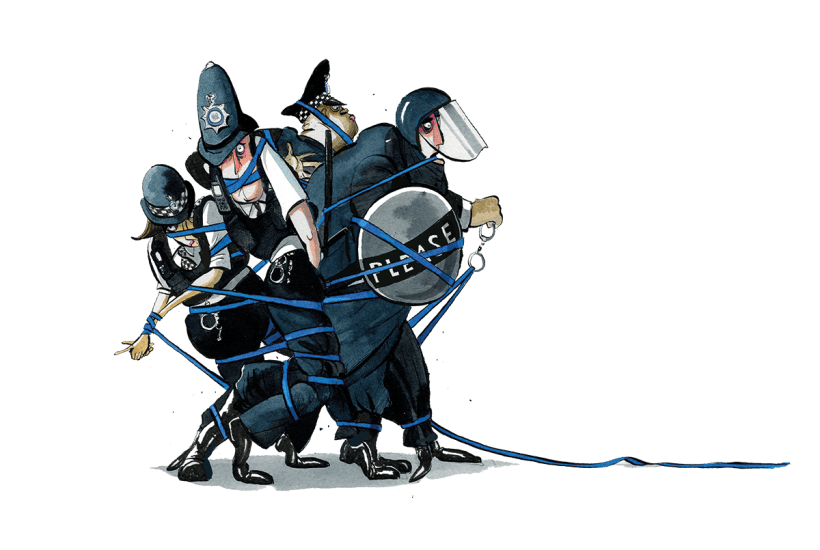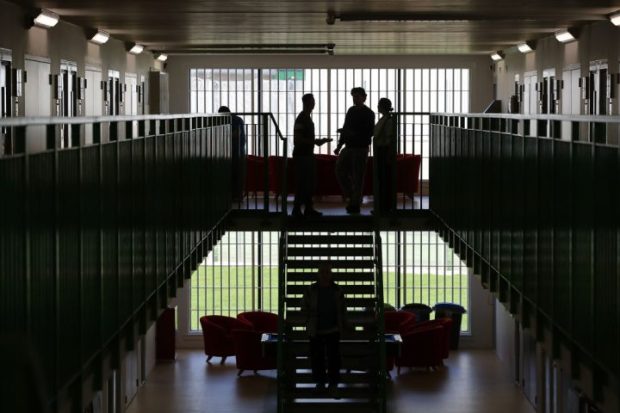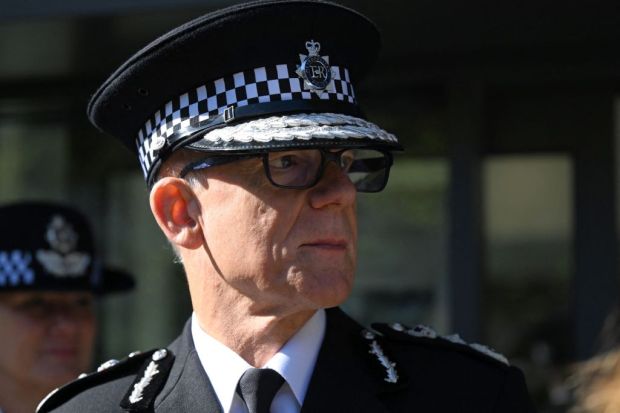Can crime be beaten with a beaten down police force? The government certainly hopes so. Today, the Prime Minister launched the much trailed ‘Beating Crime’ Plan. Not trailed enough, according to the boss of the cops’ union, The Police Federation, who says the first he heard about the plan was last Sunday — shortly after his organisation, representing 130,000 front line officers, passed a vote of no confidence in the Home Secretary.
How has this fracture between police and politicians come to pass? In rhetorical terms, this is the most pro-police administration in the last ten years. It has certainly worked hard to exorcise the malign impact of Theresa May. Johnson’s administration has moved heaven and earth to reverse the criminally stupid cuts to uniformed officers that almost destroyed community policing and visible authority on the streets. Priti Patel has gone out of her way to praise and defend the thin blue line — so thin that it has looked like fraying on more than one occasion over the last eighteen turbulent months. The Prime Minister’s special adviser on crime is a former volunteer police officer like me and one of the most thoughtful and intelligent influencers in No. 10.
So what’s behind the police fury? From plague to protests, the service has been running so hot for so long that rank and file officers I speak to, even those uneasy at the Fed’s grandstanding, are genuinely angry. It has little to do with this mostly sensible plan. There are many positives in it that elevate the rights of victims and communities over perpetrators — no doubt the cause of much of the progressive lemon sucking from the left. Outside the quinoa belt, communities are tortured and demoralised by unsolved theft and burglary. These offences, which disproportionately hurt those with little to start with, were previously almost written off. The volume of thefts and burglaries has far exceeded the police’s capability to respond with much more than a shrug.
Strict electronic monitoring of released criminals will hopefully curtail these miserable crimes. The beefing up of stop and search will be similarly welcomed outside most criminology senior common rooms. Officers will now have much more freedom to screen people for weapons in areas where they anticipate serious crime. In this year alone, 19 teenage Londoners have been murdered by knife crime. Social media is awash with hideous footage of kids stabbing each other in daytime brawls. Politicians understand that parents will hold them to account at the ballot box if they fail to make sure their sons and daughters return alive from a walk in the park. If that offends the sensibilities of a few well-insulated middle-class crime theorists then it’s probably priced into the thinking.
There’s plenty else in this plan that, if somewhat reheated in places, hits the mark. Initiatives to tackle the sexual and financial exploitation of children abound. It sensibly increases funding for drug recovery services, helping users who inflict misery on themselves, others, fill jails and perpetuate a violent black market. Similarly, improving online and in-person access to local forces simply extends the rights of citizens to speak to their constabulary. There is reform, too, of the near invisible, often superfluous and occasionally ludicrous elected police and crime commissioners. What are they for if not to drive this kind of initiative forward?
So why the discordant noise drowning out some of these excellent signals? There are three prime suspects. The first is resourcing. All of these initiatives, particularly those that require a pair of boots facing a victim or a perpetrator, need resources. While it’s true that this government has bust a gut replacing all the officers their predecessors removed through austerity, this will merely restore numbers to 2010 levels. But the demands on front line officers have dramatically outstripped this supply in the meantime. Moreover, with much of the experience stripped away, newly appointed constables need more time to become effective in an environment that is relentlessly demanding and increasingly dangerous. Police attrition rates are soaring as a consequence.
The second is pay and rations. ‘Beating Crime’ has been announced at the same time as a pay freeze on police. That’s inauspicious timing to say the very least. Guessing at police morale is an inexact science but a basic salary of about £21,000 and a real-terms pay cut is not doing much for recruitment and retention. And that’s before we start talking about how police pensions have been messed about with.
Finally, as well as available boots on the ground, we need the people that fill them to be psychologically and physically whole. There’s little point in setting 999 response targets if the police are sick with stress at home or injured in hospital. Rates of violence against officers have risen remorselessly since 2015. If the Prime Minister wants a police force that can carry out his plan, he needs to tell judges and magistrates, in plain Anglo-Saxon if necessary, that an assault with injury on an officer should almost always carry a custodial sentence. The public has been stunned by footage of police being used as human punch bags by protestors whose only motive for protesting seems to be to inflict harm with virtually no consequence. The tactical response to close quarters carnage also needs to pay less attention to the optics and more to the need to stop police injuries.
‘Beating Crime’ contains many sensible and imaginative proposals. But it can’t be done with beaten cops and a hollowed out criminal justice system jammed shut with cases. It’s a criminological heresy of course, but I happen to think we can arrest ourselves out of many of the societal ills that make us and our streets feel less safe. Clearly crime needs to be stopped before it happens and criminals rehabilitated. But police can’t wait and citizens won’t tolerate any more hand wringing. So mind how you go, Prime Minister – your beat officers need a break.
Got something to add? Join the discussion and comment below.
Get 10 issues for just $10
Subscribe to The Spectator Australia today for the next 10 magazine issues, plus full online access, for just $10.




















Comments
Don't miss out
Join the conversation with other Spectator Australia readers. Subscribe to leave a comment.
SUBSCRIBEAlready a subscriber? Log in